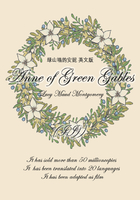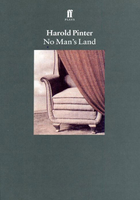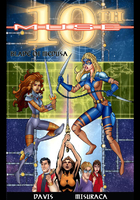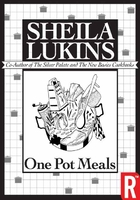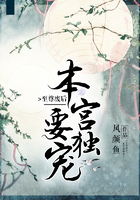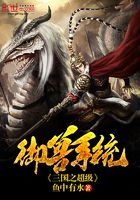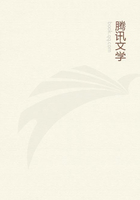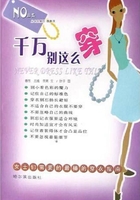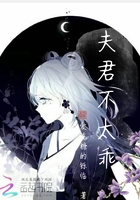PREFACE
Here is a quote that I admire, attributed to the great Gabriel Garcia Márquez:
Fiction was invented the day Jonah arrived home and told his wife he was three days late because he'd been swallowed by a whale.
Curiously enough, dishonesty is an integral part of the storytelling process. It is not exactly as we've come to employ the act of lying in a moral sense-but something slightly different. Authors use dishonesty as an engine. It takes some time to recognize this because it flies in the face of what we've learned from earliest days.
When we first encounter it, lying seems simple: Liar, liar, pants on fire. A common moment in childhood, part rhyme, part insult, a definite playground challenge-although I doubt telling a kindergarten falsehood has ever actually resulted in sudden clothing combustion. We grow up absorbing lessons that stress the immense importance of telling the truth. For example: George Washington and the cherry tree. Sadly, it never actually happened, my learned historian friends tell me. But the message isn't lost on us. The real implication of that cherry tree and young GW is different: It's that lies and lying are constantly with us. Like a warm coat on a chilly day, we wish to envelop ourselves with falsehoods from an early age, and we need to defend ourselves against this base instinct by emphasizing honesty.
Honesty-naturally-is rarely any fun. We get told that honesty is, well, the best policy, but frankly one of our most important life lessons is that one person's truth is another's lie.
Indeed, I could argue that lying and lies are a part of culture.
Want to hear some interesting music? The Liars are an excellent group. But you would have to go to a Christian revival tent to hear some band called the Truth Tellers-if there even is such a group. Perhaps you simply want to listen to a single song? Liar by Three Dog Night has had real staying power over the years. Or you would prefer to read? How about The Liars' Club by Mary Karr? It's excellent. Don't have the time for that book? How about the wonderful poem "Lying" by Richard Wilbur? In some evangelical circles, the Devil is referred to as the Great Liar. Boy Scouts are admonished: "A scout is -trustworthy"-because the alternative really sounds unlikeable-but typically we mock scouts, because we all know just how hard it is to not tell the occasional fib or white lie. If you think about it, well, there are whole industries built around lies of varying degrees of whopper-hood-only we like to call these politics or advertising or even pornography.
Which brings me to novelists.
We love lies. We embrace lies. Indeed, lies are a necessary part of our business-as much as they are for any Madison Avenue type or eager congressman seeking reelection in a tough fight. Why? Every novelist knows that within the rhythms of lying are subtle chords of truths-and we rely on these to construct our stories. If we invented characters that only told the truth (like those Boy Scouts), how boring fiction would be.
That was the mantra I kept close when I first started to write Just Cause.
The lurking notion I had was that if I could invest each character with a big enough lie-about what they'd done, who they were, their ambition, their future, their past-I could manufacture tension out of the confluence of all these falsehoods. After all, what is the essence of modern psychology? It is discovering how we have lied to ourselves and inventing a way forward based on more honest assessments. Or, to be more accurate: slightly more honest assessments. This statement is equally true for the world a novelist creates on the page as it is for the four walls and couch of an analyst's office.
When I first came to Just Cause I was still loosely connected to my first career as a newspaper reporter. I had spent significant time listening to lies in my own years on the crime and punishment beats. Some of these lies were simple: "I didn't do it!" Some were more complicated: "I didn't do it, but I can tell you who did…" Back then I listened to all these statements with the proverbial grain of salt. So often the job of a newspaper reporter is figuring out not who is lying, but how much one is being lied to. As a novelist, I wanted to find the same skepticism, prejudices, and then excitement, and endow it in my newspaper-reporter character. I didn't want him to be me. I just wanted him to think like I once did. I figured-hoped, guessed, prayed-that this would bring young Matthew Cowart to life on the pages of Just Cause.
And then in the novel, I wanted to take truth and turn it into lies, and lies into truths.
Journalism-in the Woodward and Bernstein heyday all the way up to our modern definition of the profession as tweets, blogs, and the ever-present yakety-yak of talk radio and TV news-has always had a slippery relationship with the truth, because a reporter is constantly wading through the mire of lies to find something that just might, hopefully, conceivably, knock on wood, be accurate. In this march, journalists are forever slipping, sliding, getting caught up in quicksand or mud, balancing one lie against another, listening to beliefs expressed as accuracies and accuracies expressed as beliefs, all with some great mystery of truth awaiting at the end. This optimism fuels the profession. And-obviously-creates immense traps. Lobster traps. You can get in. You just can't get out.
It was inside one of those dilemmas that I wanted to put the characters of Just Cause. It's an interesting quandary for an author: Can you make each truth support a lie, and can each lie buttress a truth?
This is the sort of question that energizes fiction writers. They fuel the plot, they juice the characters, they electrify each moment for the writer-and make the process of writing fiction hard work but also, well, fun. Digging holes-that often look suspiciously like graves-for characters, and then finding ways for them to clamber out is both the challenge and the reward of writing psychological thrillers.
I feel-if one looks carefully at almost every good novel-one can hear the underlying exchange beating at its core:
"Yes, dear. Sorry I'm late… Of course. I know you were expecting me three days ago… Well yes, now that you ask, I do have an excuse. More an explanation, really… See, dear, the other day I was totally minding my own business when I was suddenly and unexpectedly swallowed up by this great big old fish. It's taken me all this time to get out. Very unpleasant, I must say. No, really. Don't shake your head. That's what happened. I promise."
And then that conversation-just like all novels and good stories-would end with the last critically crucial question:
"You believe me, don't you?"

